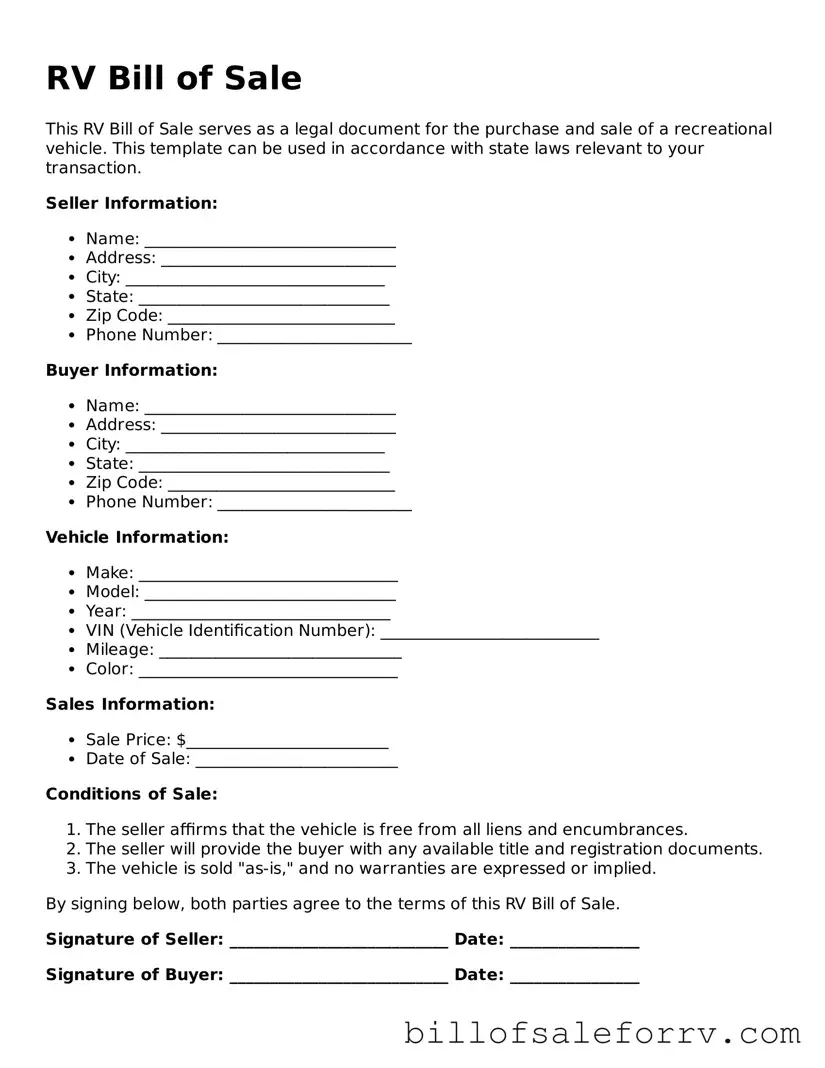RV Bill of Sale Forms for Specific States
Detailed Instructions for Writing RV Bill of Sale
Filling out the RV Bill of Sale form is a straightforward process. Once you have completed the form, you will be ready to finalize the sale of your RV. This document will help both the buyer and seller keep a clear record of the transaction.
- Begin by entering the date of the sale at the top of the form.
- Fill in the seller's information, including name, address, and contact details.
- Next, provide the buyer's information in the same manner as the seller's details.
- Include a description of the RV. This should cover the make, model, year, and VIN (Vehicle Identification Number).
- Specify the sale price of the RV clearly in the designated area.
- Both the seller and buyer should sign and date the form at the bottom.
- If applicable, include any additional terms or conditions in the space provided.
Once you have completed these steps, make sure both parties keep a copy for their records. This will serve as proof of the transaction and help avoid any misunderstandings in the future.
